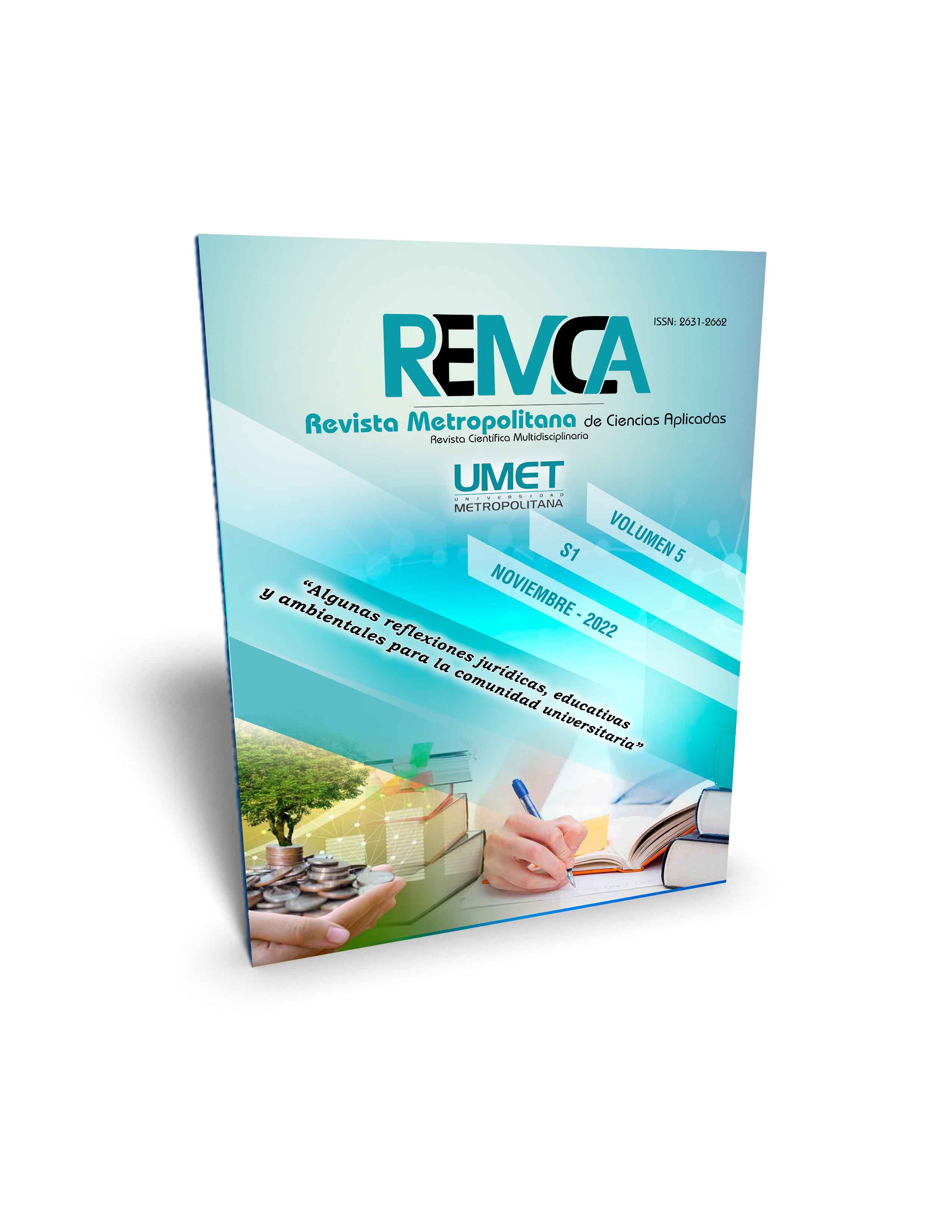Proposals to primary level teachers to prepare environmental education activities
DOI:
https://doi.org/10.62452/we08nk40Keywords:
Environmental problems, theoretical starting points, environmental education, teaching excursion, procedural alternationAbstract
The work provides theoretical and practical proposals to primary level teachers, to work in environmental education; The authors of the article only offer references that may or may not be assumed but in no way, this is an explicit proposal. The theoretical starting points and others of a practical nature can be useful to model activities close to the educational and environmental reality faced by the educator and the students. It is assumed that environmental education is an inseparable part of the comprehensive training of children, so that, by understanding the main global environmental problems, it is being contributed to an eventual identification in the immediate environment of the school and with this it is also possible to support the developing an awareness of the urgent need to protect where live the subjects involved in the teaching-learning process. The educational excursion is revealed as a recommended form of organization to teach to face environmental problems, in close links between home and school. The photographic record of the activities carried out and their analysis in the group of teachers of the cycle is important, which will allow the improvement of this type of activity in future editions.
Downloads
References
Baró, F., Camacho, D. A., Pérez Del Pulgar, C., Triguero-Mas, M., & Anguelovski, I. (2021). School greening: Right or privilege? Examining urban nature within and around primary schools through an equity lens. Landscape and Urban Planning, 208.
Bonnett, M. (2010). Environmental Education. En, P. Peterson, E. Baker, & B. McGaw (Eds.), International Encyclopedia of Education (Third Edition) (pp. 146-151). Elsevier.
Delgado, M., Casas Vilardel, M., & Jaula Botet1, J. A. (2017). La formación ambiental en la universidad cubana, 9(3), 207-213.
Engeness, I., & Lund, A. (2020). Reprint of: Learning for the future: Insights arising from the contributions of Piotr Galperin to the cultural-historical theory. Learning, Culture and Social Interaction, 27, 100476.
Engeström, Y., & Pyörälä, E. (2021). Using activity theory to transform medical work and learning. Medical Teacher, 43(1), 7-13.
Guterres, A. (2021). COP26: Enough of ‘treating nature like a toilet’. https://www.un.org/en/cop26-enough-%E2%80%98treating-nature-toilet%E2%80%99-%E2%80%93-guterres-brings-stark-call-climate-action-glasgow
Horizon Europe—Work. (2021). Programme 2021-2022 Climate, Energy and Mobility, European Commission Decision. https://ec.europa.eu/info/funding-tenders/opportunities/docs/2021-2027/horizon/wp-call/2021-2022/wp-8-climate-energy-and-mobility_horizon-2021-2022_en.pdf
Karimzadegan, H., & Meiboudia, H. (2012). Exploration of Environmental Literacy in Science Education Curriculum in Primary Schools in Iran. Procedia - Social and Behavioral Sciences, 46, 404-409.
Kashekova, I. E., Medkova, E. S., & Piryazeva, E. N. (2021). The influence of art and artistic and creative activities on the quality of information assimilation (complementary semantic approach in education). Revista Tempos e Espaços Em Educação, 14(33).
Ketonen, E. E., & Hotulainen, R. (2019). Development of low-stakes mathematics and literacy test scores during lower secondary school – A multilevel pattern-centered analysis of student and classroom differences. Contemporary Educational Psychology, 59.
Lee, C. M., Lee, C. H., & Popuri, S. (2020a). Perspective of Environmental Education in Taiwan: Current Status of Implementation. Journal of Environmental Science and Management, 23(1).
Lee, K. H., Noh, J., & Khim, J. S. (2020b). The Blue Economy and the United Nations’ sustainable development goals: Challenges and opportunities. Environment International, 137.
Mattavarat, S., Viseshsiri, P., & Siribanpitak, P. (2017). Proposed policy for preparation of high-quality primary school teachers in Thailand. Kasetsart Journal of Social Sciences, 38(2), 105-110.
Miller, C. A., & Wyborn, C. (2020). Co-production in global sustainability: Histories and theories. Environmental Science & Policy, 113, 88-95.
Partido Comunista de Cuba. (2011). Lineamientos de la Política Económica y Social del Partido y la Revolución. https://www.tsp.gob.cu/documentos/lineamientos-de-la-politica-economica-y-social-del-partido-y-la-revolucion
Quiocamba-Gomes, E., Armiñana-García, R., Fimia-Duarte, R., & Iannacone, J. (2020). La comunidad y la protección del patrimonio cultural en la ciudad de los parques. The Biologist, 18(1).
Singh, P., Sahadev, S., Oates, C. J., & Alevizou, P. (2020). Pro-environmental behavior in families: A reverse socialization perspective. Journal of Business Research, 115, 110-121.
Tormey, D. (2019). New approaches to communication and education through geoheritage. International Journal of Geoheritage and Parks, 7(4), 192-198. https://doi.org/10.1016/j.ijgeop.2020.01.001
U-Sayee, C. R., & Adomako, E. B. (2021). Supervisory practices and challenges faced by senior high school principals in Greater Monrovia, Liberia: Implications for quality education. Heliyon, 7(4).
Downloads
Published
Issue
Section
License
Copyright (c) 2022 Reinaldo Requeiro Almeida, Arnelis Yolanda Cruz Fernández (Autor/a)

This work is licensed under a Creative Commons Attribution-NonCommercial-ShareAlike 4.0 International License.
Authors who publish in Revista Metropolitana de Ciencias Aplicadas (REMCA), agree to the following terms:
1. Copyright
Authors retain unrestricted copyright to their work. Authors grant the journal the right of first publication. To this end, they assign the journal non-exclusive exploitation rights (reproduction, distribution, public communication, and transformation). Authors may enter into additional agreements for the non-exclusive distribution of the version of the work published in the journal, provided that acknowledgment of its initial publication in this journal is given.
© The authors.
2. License
The articles are published in the journal under the Creative Commons Attribution-NonCommercial-ShareAlike 4.0 International License (CC BY-NC-SA 4.0). The terms can be found at: https://creativecommons.org/licenses/by-nc-sa/4.0/deed.en
This license allows:
- Sharing: Copying and redistributing the material in any medium or format.
- Adapting: Remixing, transforming, and building upon the material.
Under the following terms:
- Attribution: You must give appropriate credit, provide a link to the license, and indicate if any changes were made. You may do this in any reasonable manner, but not in any way that suggests the licensor endorses or sponsors your use.
- NonCommercial: You may not use the material for commercial purposes.
- ShareAlike: If you remix, transform, or build upon the material, you must distribute your creation under the same license as the original work.
There are no additional restrictions. You may not apply legal terms or technological measures that legally restrict others from doing anything the license permits.




